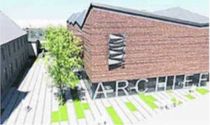Now everyone possesses the nationality of the country to which he belongs.
If he moves to another country, he retains the nationality of his country of origin, exceptif he wishes to be naturalized and assumed the nationality of the country to which he imigrated.
Until the introduction in 1804 of our Civil Code, also called Code Napoleon, this was the way it was.
But the nationality, or better 'the civility' was associated with a much smaller area: a city, a castellany or a seignory. It was freeman of a City or a peasant' of a seignory. The original wording in the local language was 'laat', vrijlaat' for a peasant of the Liberty of Bruges.
In the 'kasselrijen' of the Westland: Furnes, Bourbourg, Bergues and Cassel, one was keurbroeder or keurzuster of the kasselrij.
Poorter' (en: freeman) or 'laat', 'keurbroeder' or 'keurzuster' (en: peasant) indicated to which jurisdiction wqs belonging.
A freeman from Bruges could ask to be removed from his 'freemenship' and to be registered as a peasant of the 'Liberty of Bruges' and vice versa. Knowing the freemenship or the peasantship is very important, because at his death any inventory after death (or orphan deed) must be registered in registers of the city, castellany or seignory corresponding to his 'civility'.
With this knowledge one can find where to search for the Orphan Deeds or other information about the deceased person. Information about land or houses is registered by the aldermen of the jurisdiction in which they lie.
Source: Jos. De Smet: Het Brugse Vrije en zijn archief. De Vlaamse Stam, 1968, blz. 433 - 444.
Voor wie meer wil weten over poorters en levensomstandigheden kan op volgende link een schitterend werk downloaden.Prinsen en poortersonder redactie van Walter Prevenier.
It's a very interesting and beautiful work about on the Burgundians: how they lived here and what they have done here; a fascinating picture of all sections of the society of that time and very interesting background information for genealogists.
You can click in the index on the chapter you want to read.
|
